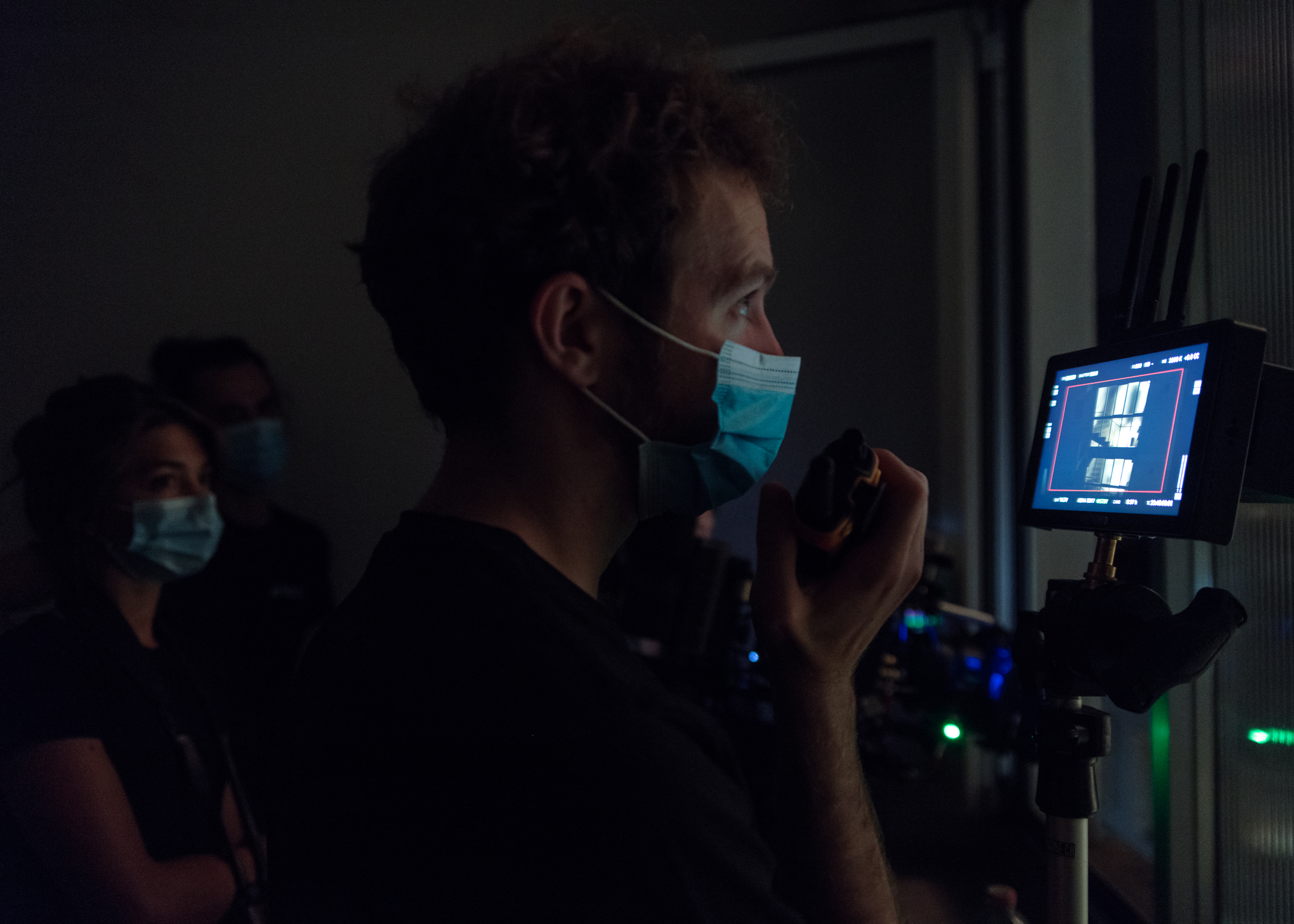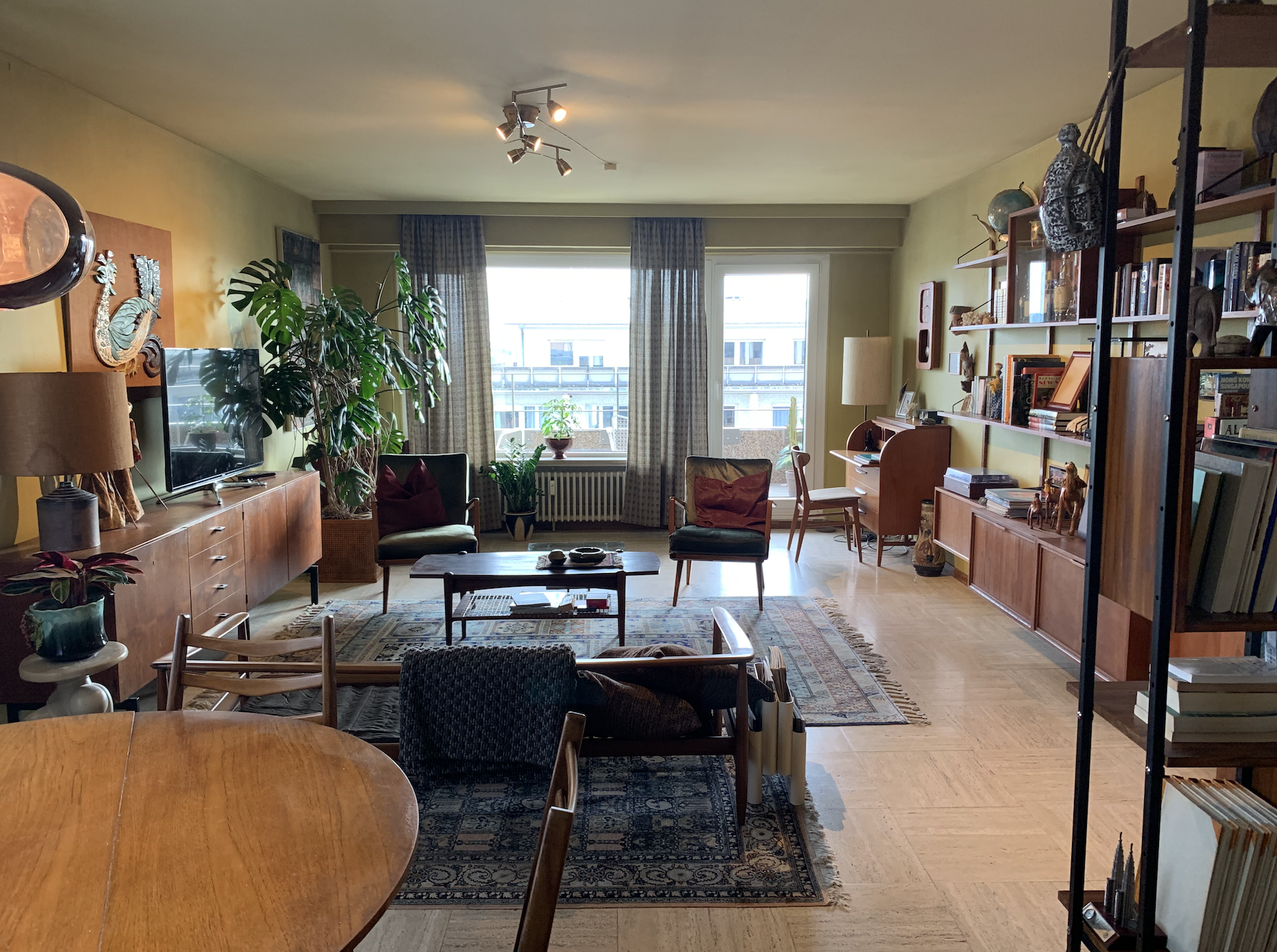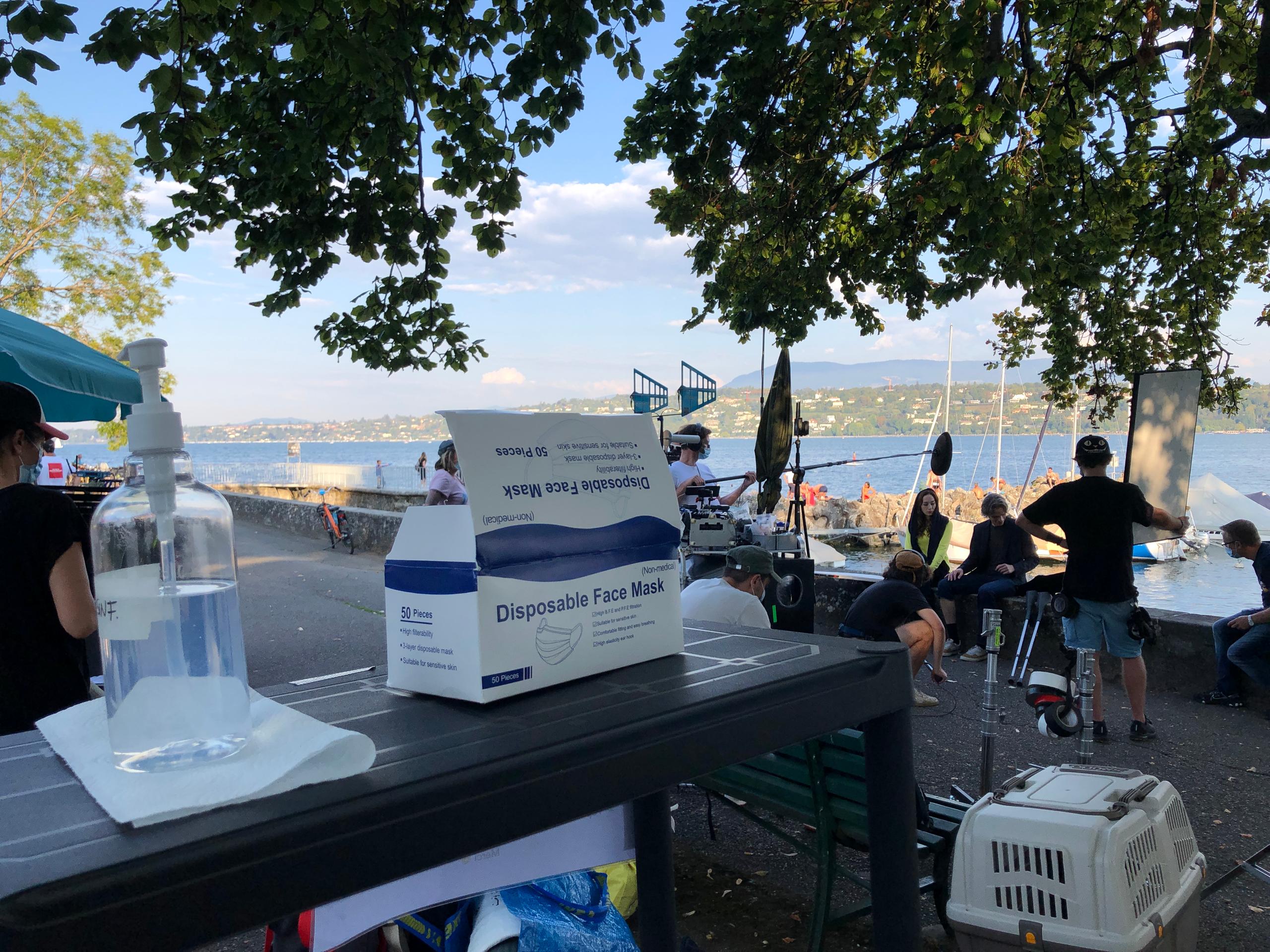Pause and play: the Swiss film industry through the pandemic

International sets, large crowds and crews, intimate shots: filmmaking doesn’t naturally lend itself to social distancing, meaning the coronavirus is disrupting films worldwide. This is how Swiss directors and the industry have been coping with the situation.
Romed Wyder was working as a director on a Swiss-Luxembourg co-production when the Swiss government announced the lockdown in March, effectively suspending international travel. “We didn’t know what was going to happen,” he said. “We had to make a decision. We stopped everything and postponed to late summer.”

Cast and crew of his feature film Une histoire provisoire (A temporary story) are from both countries. The primary indoor location was in Luxembourg. “We’d just finished installing the décor for our interior shots, where filming was supposed to start a week later,” Wyder said. “We could only have that apartment until the beginning of September, so we definitely had to come back before that.”
An industry on hold
His is one of several productions that came to a halt amid the pandemic. The break put a strain on budgets and left the jobs and creative output of people in the country’s creative industry at risk.
The Swiss Broadcasting Corporation (SBC), swissinfo.ch’s parent company, normally puts CHF32.5 million ($35.7 million) into the film industry every year. It has had to postpone or put on hold the production of several TV-series, documentaries and co-productions. Production companies rescheduled their film premieres as cinemas closed.
The Locarno Film Festival, like many similar events, was cancelled in its traditional form because of the outbreak. Organisers decided to introduce a new award category. Twenty projects that were put on hold because of the coronavirus – ten Swiss, ten international – competed in the “The films after tomorrow”External link section. Five winners were awarded prize money ranging from CHF30,000 to CHF100,000 to help the film crews complete their work.
Budgets unexpectedly inflated
Disassembling and storing set decoration added extra costs to Wyder’s bills. So did the longer equipment rental, the salaries he had to pay during the unexpected break and the extended shoot.
Adding days to the schedule isn’t the only cause for an unplanned budget rise. According to the guidelinesExternal link issued by the Association of Swiss Producers, production companies have to equip sets with washing facilities, disinfection and protective material and provide additional cleaning staff. Workers have to travel in smaller groups or individually.
“We had to reorganise the circulation of people on set to keep the necessary distance and comply with the maximum amount of people in the same room,” Wyder said. “This can add roughly one hour to the normal daily routine”.
The guidelines also recommend appointing a chief health officer, who ensures the rules are followed. This person “must be present at all times and must not be constrained by other duties”, according to the guidelines.
That often means that an additional person has to be hired at short notice, no small feat for limited production budgets. “Ideally, we’d look for an additional stage manager, someone who also has some basic medical knowledge,” said Elena Tatti, a producer at the Swiss production company Box Productions. The shoot of their upcoming feature also had to be postponed from mid-July to the beginning of September.
Proceeding with caution
Amid the uncertainties, some still managed to pursue their shoot, with the necessary precautions, like Swiss director Laura Kaehr, currently filming Becoming Giulia. Everyone wore masks and medical gloves during the first critical weeks of the pandemic, she said.
“I’m making a documentary, so the situation is a bit different. The actors are part of a real-life family. They share a house. No strict social distancing is required among them,” said Kaehr. “Luckily my protagonists live on the ground floor, so at the beginning we were able to continue working with the crew staying outside in the garden, placing the microphone near the window,” she recalled.
Do restrictions mean there won’t be any films showing close contact between actors? “There has to be,” said Swiss producer and director Alberto Meroni. “It’s up to us to understand, with intelligence and foresight, how to do this.” During the pandemic, he shot only a couple of TV adverts, an experience that influenced his decision to delay filming on other projects.

“In these short ads there were only a couple of actors, part of the same family, the crew wore masks, and we shot outside,” said Meroni. “These measures wouldn’t have been applicable, for example, to the feature film we had planned, because it takes place in a high school, with lots of kids, in an enclosed space”.
Imposing a quarantine on cast and crew isn’t always feasible, but it could be an option to avoid further delays, if the setting of the shoot allows it. “Until we get a vaccine, actors have to play along and isolate themselves prior to coming on set,” said Meroni.
Uncertainties after hitting ‘record’
Besides intimate shots, the pandemic also raises questions about casting. Industry guidelines state that people considered as vulnerable, according to the Federal Office of Public Health, shouldn’t be hired, effectively excluding people aged 65 or above, among others.
This caused the indefinite delay of director Felix Tissi’s upcoming feature Aller Tage Abend (As time goes by), which he describes as a “whimsical tale about old age.” The shoot was stopped mid-March and will probably not resume before the end of the year.
But these are not the only concerns. The cancellation of film festivals and premieres around the world affected the visibility of these projects, while the unplanned pause has left many in the industry worrying about an oversupply of films when life returns to some kind of normality after the pandemic.
As many professionals are self-employed and work on several projects per year, the postponements have jeopardised projects due to start this autumn. Producers might have to compete to woo the best technicians for their productions.
Overall, directors and producers say that actors are taking their responsibilities seriously and that they trust each other. “Actors know what it means not to be working; they don’t want to risk that,” says Romed Wyder. “We have absolutely no interest in someone getting ill, so we’ll do all it takes to prevent that and the general delay it could cause.”
Wyder is one of the lucky ones: shooting for his feature film has restarted, both in Luxembourg and Geneva.

More
On set in Geneva

In compliance with the JTI standards
More: SWI swissinfo.ch certified by the Journalism Trust Initiative












You can find an overview of ongoing debates with our journalists here . Please join us!
If you want to start a conversation about a topic raised in this article or want to report factual errors, email us at english@swissinfo.ch.